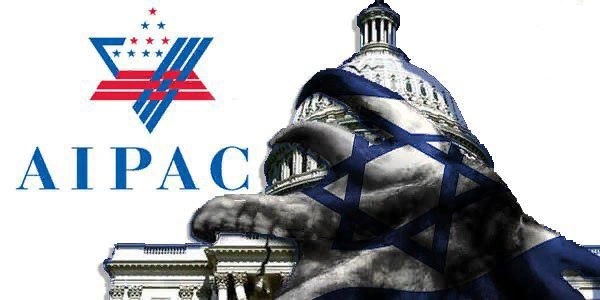
Pro-Diplomacy Groups Said The Letter, Led By AIPAC, Was An Effort Meant To Prevent Biden From Reentering The Iran Nuclear Deal.
U.S. Senator Lindsey Graham (R-SC) salutes as he arrives to address the gala banquet of the American Israel Public Affairs Committee (AIPAC) annual policy conference in Washington March 22, 2010. Declaring “Jerusalem is not a settlement,” Israeli Prime Minister Benjamin Netanyahu struck a defiant note on Monday after new American criticism of Jewish home construction in disputed territory in and around the city. His speech in Washington to AIPAC, an influential pro-Israel lobby group, contrasted sharply with an address American Secretary of State Hillary Clinton made at the same forum hours earlier.
Forty-three mostly Republican senators have joined an effort backed by the American Israel Public Affairs Committee to pressure the Biden administration to take a harder line on Iran.
Sens. Bob Menendez (D-N.J.) and Lindsey Graham (R-S.C.) had been pushing their colleagues for at least several weeks to sign a letter to President Joe Biden on the Iranian issue.
AIPAC, which has consistently called for a harder line on Iran and opposed the Obama administration’s diplomatic efforts, promoted the letter as top priority during its annual conference, the Jewish Insider reported.
The hawkish pro-Israel group had already pushed 70 Democrats and 70 Republicans in the House of Representatives to sign a letter on Iran.
But the letter by Menendez and Graham was far less bipartisan, perhaps due to the senators’ previous efforts to derail diplomacy with Iran, with Graham having pushed for regime change and war. The two senators were joined by only thirteen Democrats and Senator Angus King (I–Maine), who is registered as an Independent but belongs to the Democratic caucus.
Only two Democratic members of the Senate Foreign Relations Committee — Ben Cardin (Md.) and Chris Coons (Del.) — joined Menendez, who chairs the committee. Ranking Member Jim Risch (Idaho) as well as Sens. Todd Young (Ind.) and Mike Rounds (S.D.) were the only Republicans on the committee to sign.
The letter calls on Biden to “use the full force of our diplomatic and economic tools in concert with our allies on the United Nations Security Council and in the region to reach an agreement that prevents Iran from ever acquiring nuclear weapons and meaningfully constrains its destabilizing activity throughout the Middle East and its ballistic missile program.”
Menendez and Graham’s effort was seen by JCPOA proponents as an attempt to derail a return to the 2015 nuclear deal and continue the Trump administration’s maximalist policies. J Street, a left-leaning pro-Israel group, lobbied senators not to sign on.
“There are legitimate concerns about a number of Iranian policies — nuclear, regional and domestic,” said Barbara Slavin, Director of the Future of Iran Initiative at the Atlantic Council. “But there is only one feasible route to address them and that is by first rejoining the JCPOA. Those who demand a more ambitious agenda up front are just erecting obstacles to any diplomacy with Iran. The result will be a further deterioration in the status quo.” Under the 2015 deal, Iran had agreed to strict limits on its nuclear program and international inspections in exchange for six world powers lifting the international embargo on the Iranian economy.
The Trump administration broke from the deal in 2018, replacing it with a strategy of “super maximum economic pressure” aimed at securing a “better deal.” Biden has condemned this strategy as a “dangerous failure” and vowed to return to the 2015 deal before negotiating on other issues.
NIAC Action, the National Iranian American Council’s lobbying arm, argued earlier this month that Menendez and Graham’s letter “would make the attainable impossible and risks setting President Biden on course for war with Iran” because it “suggests that the only acceptable agreement is one that addresses all concerns with Iran at once.”
“There is one clear option for the administration to roll back Iran’s nuclear program and create a pathway to begin negotiations on other areas of concern: returning to full compliance with the [2015 deal],” the pro-diplomacy group argued. “Any efforts to muddle or frustrate this pathway are not helpful and risk frustrating serious diplomatic efforts that are underway.”